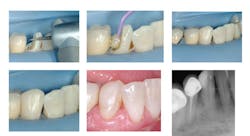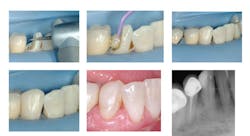Working longer, retiring later
by Roger P. Levin, DDS
Retirement has always been a top concern for dentists, but now many believe they will have to work until they're 65 or older. In fact, according to a recent ADA study, responding dentists are saying their estimated retirement age is even higher at 68.3.
Dentistry was supposed to be one of those magical careers where dentists pull down high salaries and dictate when they want to retire, usually sometime in their early 50s. What happened? The real world finally caught up with dentistry in terms of increased competition, changing consumer behavior, and a devastating recession followed by an extremely slow recovery.
To succeed in today's economy and get their retirement plans back on track, dentists must immerse themselves in the business of dentistry. Here are four things that every dentist should do to lower their retirement age:
1) View your practice as a dental business
This doesn't mean giving clinical care a lower priority. Rather, running a successful dental business enables you to provide great care to even more patients. Too many dentists think that a dental degree equates with automatic practice success. That is no longer true. As a small business, a dental practice has to do the same things as other small businesses -- operate efficiently, market effectively, control expenses, and turn a profit. Dentists who are the practice CEO must ensure these activities get done, and done well.
2) Learn as much about the business of dentistry as possible
Almost no dentist leaves dental school with a business degree. Most dentists learn how to run their practices through trial and error, a very inefficient method that leaves doctors with enormous gaps in their business knowledge. Those gaps will cost dentists dearly throughout their careers. The losses could potentially be in the millions of dollars.
To reap the maximum benefit from their practices, dentists should invest in their own business education. This includes reading business books, attending management and marketing seminars, taking courses, and working with business experts. Dentists who constantly learn how to run a better dental business are in the best positions to actually do so.
3) Implement effective business systems in the practice
Just as the clinical side of your practice has step-by-step protocols for each procedure, you need to have step-by-step systems for the business side of your office.
In the past, dentists could be reasonably successful without superior systems due to the strong demand for dental services. That business model is no longer viable, as the recent recession demonstrated, wreaking havoc on production, doctor income, and profitability for the vast majority of dentists. We have entered a new era of dentistry, and this new dental economy rewards only those practices with the most efficient business systems.
4) Work with a dental-knowledgeable financial planner
Don't assume this is common-sense advice. While there is a seemingly endless supply of financial planners, those who are dental-knowledgeable are, in fact, quite rare. Retirement planning should occur throughout a dentist's career -- not just at the end of it. The sooner you begin the financial planning process, the better prepared you will be when you decide to retire.
Unfortunately, young dentists believe retirement is a long way off, so therefore they don't need to meet with a financial planner. They tell themselves they will do it "one of these days." Once a dentist is practicing, the months quickly become years, and the years become decades, and suddenly, a fresh-faced 28-year-old is now 48 and starting to wonder whether he or she will have enough to retire on in 10, 15, or more years.
Don't let that happen to you. No matter where you are in your career, I urge you to schedule an appointment with a dental-knowledgeable financial planner within the next month. If you already have a financial plan, when was the last time you met with your financial planner to review it? You should meet with your financial planner at least once a year.
Conclusion
Financial independence doesn't happen automatically. It must be planned, every step of the way. That means treating your practice like a business so you can generate the maximum return from it for your entire career. It also means planning and saving for retirement as early as possible. Following these four steps will help you retire when you want to, not when you have to.
To learn how to run a more profitable, efficient, and satisfying practice, visit the Levin Group Resource Center at www.levingroup.com/gp -- a free online resource with tips, videos, and other valuable information. You can also connect with Levin Group on Facebook and Twitter (Levin_Group) to learn strategies and share ideas.
Past DE Issues

